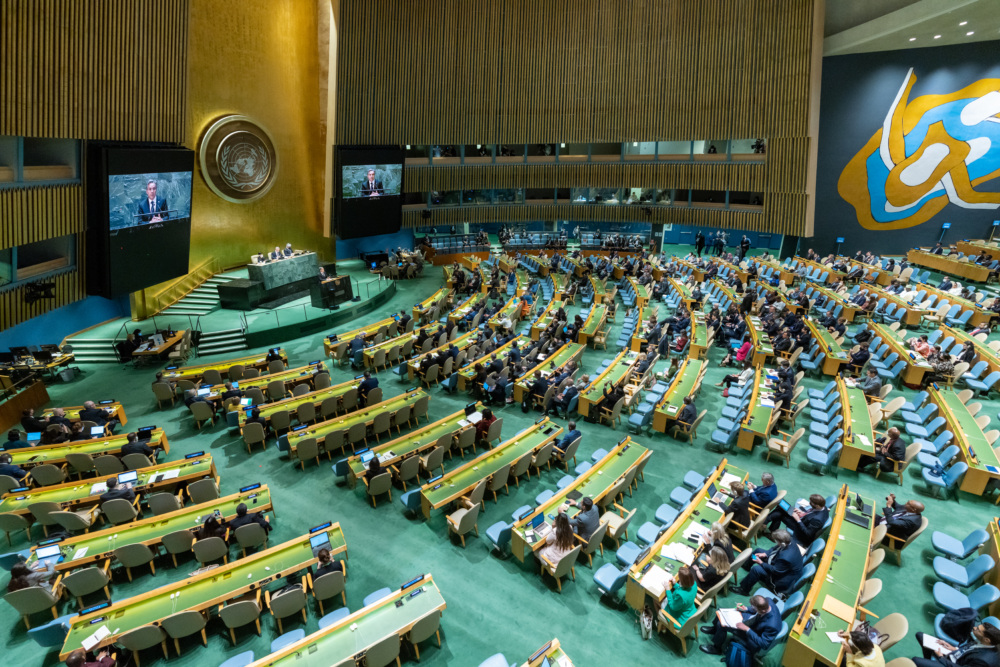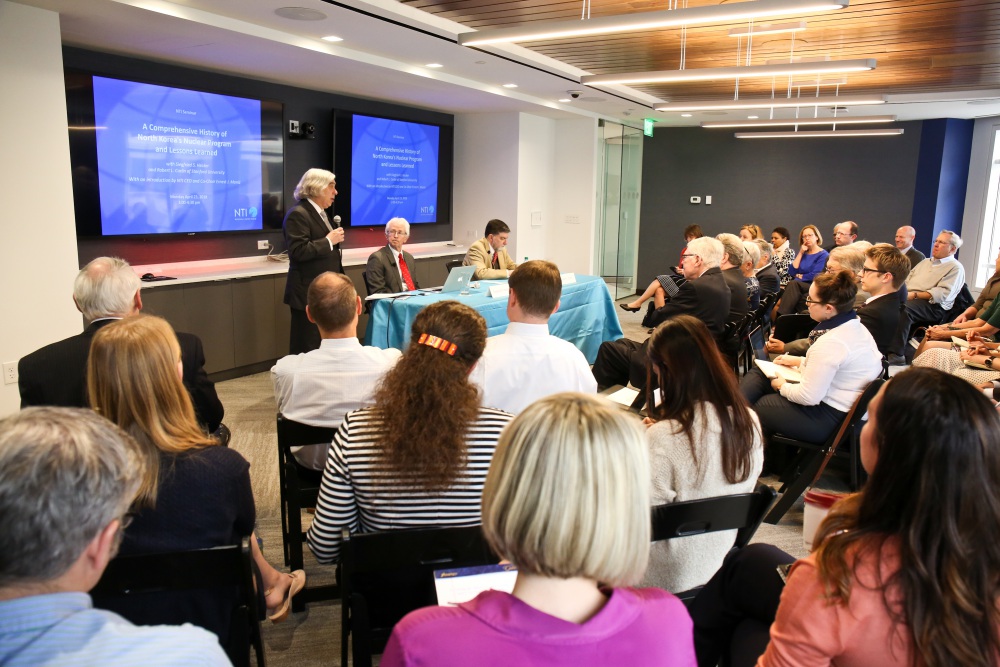This post was written
by Madison Estes, an intern on NTI’s material security and minimization team who
recently completed her MA in Nonproliferation and International Security at King’s
College London.
On Monday, April 23, NTI launched its new seminar series with
a presentation from Siegfried Hecker and Robert Carlin of Stanford University
on the history of Democratic People’s Republic of Korea’s (DPRK) nuclear program. Hecker
started the program with a thorough overview of the evolution of the North
Korean program from its inception to present day, highlighting inflection
points in the relationship between the U.S. and DPRK across a spectrum of
issues.
Following Dr. Hecker’s detailed recount of the DPRK nuclear
program, he emphasized that:
- North Korea’s pursuit of nuclear weapons is
deliberate, patient, and determined.
- Although past progress towards disarmament often
slowed and at times, even reversed, diplomacy itself was never abandoned.
- DPRK took nearly 25 years to fully nuclearize,
and therefore policymakers should expect that it will require decades to walk
back the program.
- Lastly, that rhetoric implying that North Korea
has cheated on their previous agreements should be abandoned ahead of
negotiations.
Following the presentation, Hecker and Carlin discussed the
opportunity—and challenge—presented by the upcoming talks on DPRK
denuclearization. Noting that that not all weapons, missile tests, plutonium
inventory and other elements of their program could be eliminated at once, that
priority should be given to the most critical risks first..
Hecker and Carlin also discussed the evolution of North
Korea’s priorities, which have shifted from achieving a nuclear deterrent to the
pursuit of economic strength. This will be critical for negotiators to bear in
mind, as this public shift in position will allow DPRK leadership more
flexibility at the negotiating table to make potential concessions to achieve
economic goals.
As the discussion came to a conclusion, Hecker also
addressed a question from the audience regarding the Trump administration’s
desire to maintain a two-year timeline for North Korea’s denuclearization
process. He noted that he believed verifiable implementation of a moratorium on
nuclear and long-range delivery vehicle testing and plutonium production would
be a realistic pathway to denuclearization that could be accomplished in a
two-year timeframe.
The session concluded following additional audience Q&A
and a reception.
For a collection of educational resources on North Korea’s
nuclear program, click here.




